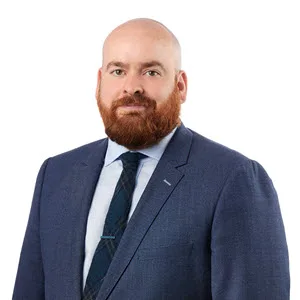Second Circuit Holds Whether Employer Knows Employee Is Not Being Paid Is Irrelevant To FLSA Liability
Second Circuit Holds Whether Employer Knows Employee Is Not Being Paid Is Irrelevant To FLSA Liability
On August 25, 2023, the U.S. Court of Appeals for the Second Circuit held that whether an employer knows an employee is not being paid is irrelevant to liability under the Fair Labor Standards Act (“FLSA”) in Perry v. City of New York. Rejecting the City of New York’s argument that they cannot be held liable because they offered workers an opportunity to report overtime work that was not taken advantage of, the Court ultimately found that if an employer suffers or permits the employee to work-either by requiring the work, knowing about it, or failing to exercise reasonable diligence to discover it-then it must compensate the employee, whether or not the employee fails to report the work or even if the employer does not know the employee is working unpaid.
The plaintiffs in Perry were 2,519 EMTs and paramedics who sued the City of New York for unpaid overtime wages, alleging that the City required them to perform tasks before and after their shifts, such as inspecting equipment and vehicles, but compensated them only if they specifically requested it. After trial, a jury awarded the plaintiffs damages of over $17 million dollars against the City. In response the City appealed, arguing that because they offered an opportunity to report the work and plaintiffs did not do so they did not know any plaintiff was being short-changed. To be liable, the City argued, they would need to require or know about the overtime work and know the workers would not be paid for it.
The Second Circuit Court of Appeals decisively rejected the City’s argument and held that whether an employer knows an employee is not being paid is irrelevant to FLSA liability. Instead, the key inquiry under the FLSA statute is whether the employer “suffers or permits” the work-that is the employer requires it, knows about it, or should have known about it. Although an employer can require employees to report overtime work, and a failure to do so could potentially allow an employer to argue they do not have knowledge of the work itself or that the violation was not willful, whether the employee specifically requests payment for work the employer is otherwise shown to suffer or permit is irrelevant to liability.
The decision in Perry confirms that employees should not necessarily think that failing to report overtime at work will exclude them from being able to obtain unpaid wages. If you believe you may be owed overtime wages, speak to an experienced wage and hour attorney as soon as possible to know your rights.
Faruqi & Faruqi, LLP focuses on complex civil litigation, including securities, antitrust, wage and hour and consumer class actions as well as shareholder derivative and merger and transactional litigation. The firm is headquartered in New York, and maintains offices in Atlanta, Los Angeles and Philadelphia.
Since its founding in 1995, Faruqi & Faruqi, LLP has served as lead or co-lead counsel in numerous high-profile cases which ultimately provided significant recoveries to investors, direct purchasers, consumers and employees.
To schedule a free consultation with our attorneys and to learn more about your legal rights, call our offices today at (877) 247-4292 or (212) 983-9330.




